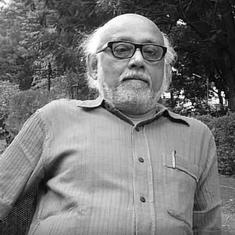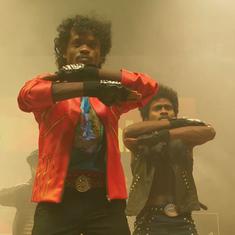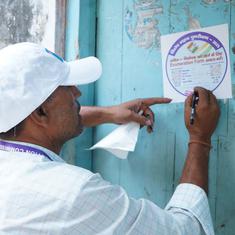The made snana (made = leftover, snana = bath), in which people roll over plantain leaves with leftovers of food eaten by Brahmins, may not take place this year. The Supreme Court on Thursday vacated its stay on a proposal by the Karnataka government to modify the ritual. Devotees, who believe the practice will cure and protect them from skin diseases, infertility or a family curse, will not be allowed roll over leftovers. Instead, they can do so on food that hasn’t been eaten but offered to the deity.
The religious tradition became controversial in 2010 when, pushed by social and Dalit activists, the state government tried to ban it. The progressives criticised the ritual as being caste-based, against hygiene, and against human dignity. Traditionalists have argued that the government must stay out of matters of personal faith.
The state government ban caused a hue and cry, especially among in forest tribe community called the Malekudiyas. The Malekudiyas, who played a significant role in temple functions refused to perform their duties and demanded that the ban be lifted. In 2011, BS Yeddyurappa, the chief minster at the time, relented to the pressure from devotees, priests and members of his administration and reinstated the tradition.
A compromise
In 2012, the government came up with a compromise solution – stop made snana but have the temple allow ede snana, "bathing" in the offering to the deity. The Karnataka High Court backed the government but the Supreme Court stayed the order.
In 2013, the Congress state government under Chief Minister Siddaramiah, a self-confessed atheist, drafted the Karnataka Prevention of Superstitious Practices Bill with the aim of ending all practices that harm or exploit vulnerable people. Made snana was one such practice the bill characterised as a “blind belief”. It has yet to become law.
But worried by the bill and the apex court’s scrutiny, devotees turned up at the Kukke Subrahmanya temple in record numbers last year. The belief goes that the snake and its presiding lord, the deity of the Kukke temple, Subrahmanya, must be appeased to safeguard devotees from skin ailments and to protect their children. A report in The Hindu described the scene on the second day of the ceremonies last year:
“After the Brahmin families had their meal around 2 p.m., the doors to the temple were flung open. With the sound of the band playing in the background, the devotees, from various castes, rushed in to perform the ritual.
Covered with vestiges of the meal they had rolled over, the devotees completed their ‘vow’ by washing up at a stream of the Kumaradhara that flows nearby.”
The origins of the made snana lie in practices that forced people of lower caste to take on the evil and sin that members of the upper caste washed off themselves, says GK Karanth of the Institute for Social and Economic Change. Today, it has become a voluntary and imitative practice with people across castes, including Brahmins, taking part.
For the Kukke Subrahmanya temple, the made snana is its raison d’etre, according to Karanth. “In any place of worship, be it Benaras, Gaya or Amritsar, there are some distinct seva that you do which captures the religious imagination of the population," he said. "There are high stakes, a lot of money involved, and a lot of weightage vis-à-vis other temples.”
Karanth feels that the new Supreme Court ruling doesn’t mean that the practice will be snuffed out at once but will start a slow move away from from it. “There is always likely to be this belief or associated rituals in the open or hidden form,” he said pointing to black magic practices that are illegal but still performed because of people’s deep faith in them. “Also, if the temple doesn’t allow made snana then people will find a benign religious substitute,” Karanth said.










